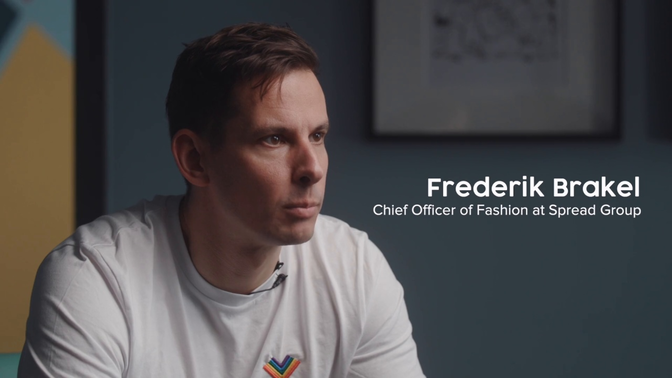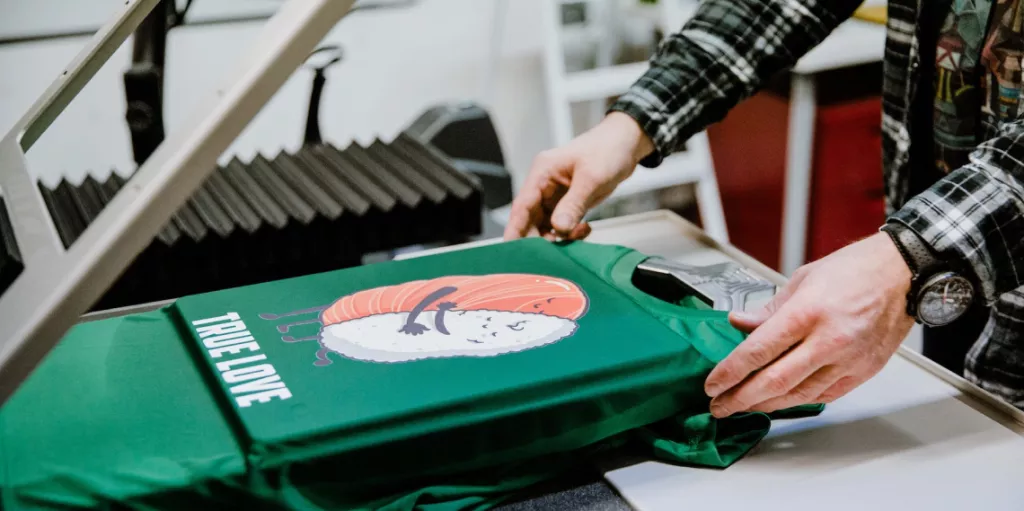Konsumgüter
Mode und Bekleidung
Einzelhandel und E-Commerce
Spread Group + UserTesting
Wie Europas größtes Auftragsdruckunternehmen Einblicke in Wettbewerber nutzte, um neue Funktionen einzuführen und den Umsatz zu steigern

Über das Unternehmen
Spread Group ist ein globaler Anbieter von individualisierten Mode- und Lifestyle-Produkten. Mit den Marken Spreadshirt, Teamshirts, SPOD und Spreadshop bietet die Spread Group Konsument*innen, Unternehmen und Content Creatorn (z.B. YouTube, Instagram, TikTok) digitale Dienstleistungen zur Individualisierung von Mode- und Lifestyle-Produkten.
Das 2002 in Leipzig gegründete Pionierunternehmen betreibt heute fünf Produktionsstandorte in den USA und Europa und erzielt einen Jahresumsatz von über 175 Millionen Euro. Im Jahr 2021 fertigte Spread Group mehr als 10 Millionen Produkte auf Bestellung für Kund*innen in über 170 Ländern an.

- 20%Steigerung des Verkaufs von biologischen / nachhaltigen Produkten
 Erfolgreiche Einführung der Sticker-Verkaufsfunktion des Unternehmens
Erfolgreiche Einführung der Sticker-Verkaufsfunktion des Unternehmens- 20xSteigerung der Tests über ein Jahrzehnt mit UserTesting
By 2012, Spreadshirt had established itself as an e-commerce pioneer and Europe’s market leader in the made-to-order business.
When the company began to invest in human insight, they recognized they had no easy way to reach people across the ocean and run studies with American users. Getting people from Leipzig to participate in-person and visit the Spreadshirt headquarters was no issue. But conducting user studies in the United States posed a problem.
The team recognized there were cultural differences between their German and US customers, and knew that applying insights from German samples to US customers wasn’t an option. Spreadshirt needed to solve the challenge in another way.
Spreadshirt brought their qualitative research practice online. They solicited video insights from the company’s customers and potential customers to understand perceptions of their products and their marketing campaigns before they took them live. Product designers understood they now had an option to quickly set up tests and gather feedback—which, in turn, would enable faster development.
That initial project marked the beginning of a 10-year collaboration between Spreadshirt and UserTesting. In year one, Spreadshirt ran 36 tests. And by the end of year two, UserTesting had become the go-to solution for research projects that demanded quick feedback, resulting in twice the number of tests conducted.
Over 10 years of collaboration, UserTesting has become a central component of research activities for B2C and B2B projects across the Spread Group brands. In the most recent year, the organization has run 735 tests—approximately 20 times as many tests as they conducted during their first year with UserTesting. Spread Group companies test with participants globally, but especially with American and German contributors, recording their responses in English and German respectively.

The research projects make a major impact for the business. For instance, Spreadshirt had UserTesting contributors analyze the websites of the organization’s made-to-order competitors. Then they used those video-based insights to craft the option to custom-print stickers and successfully launched the new component on their website.
Similarly, working with UserTesting helped Spreadshirt understand how to communicate with potential customers about their sustainability practices. Contributors were clear that Spreadshirt ran the risk of ‘greenwashing,’ by speaking vaguely in their marketing prototypes about the sustainable materials in their clothing. Spreadshirt took this insight to heart and began labeling their shirts as “organic” and developed clearer labels, filters, and categories to help visitors find the products they seek. Since implementing and releasing the name changes, Spreadshirt observed a nearly 20% increase in the sales of organic products in Europe.




